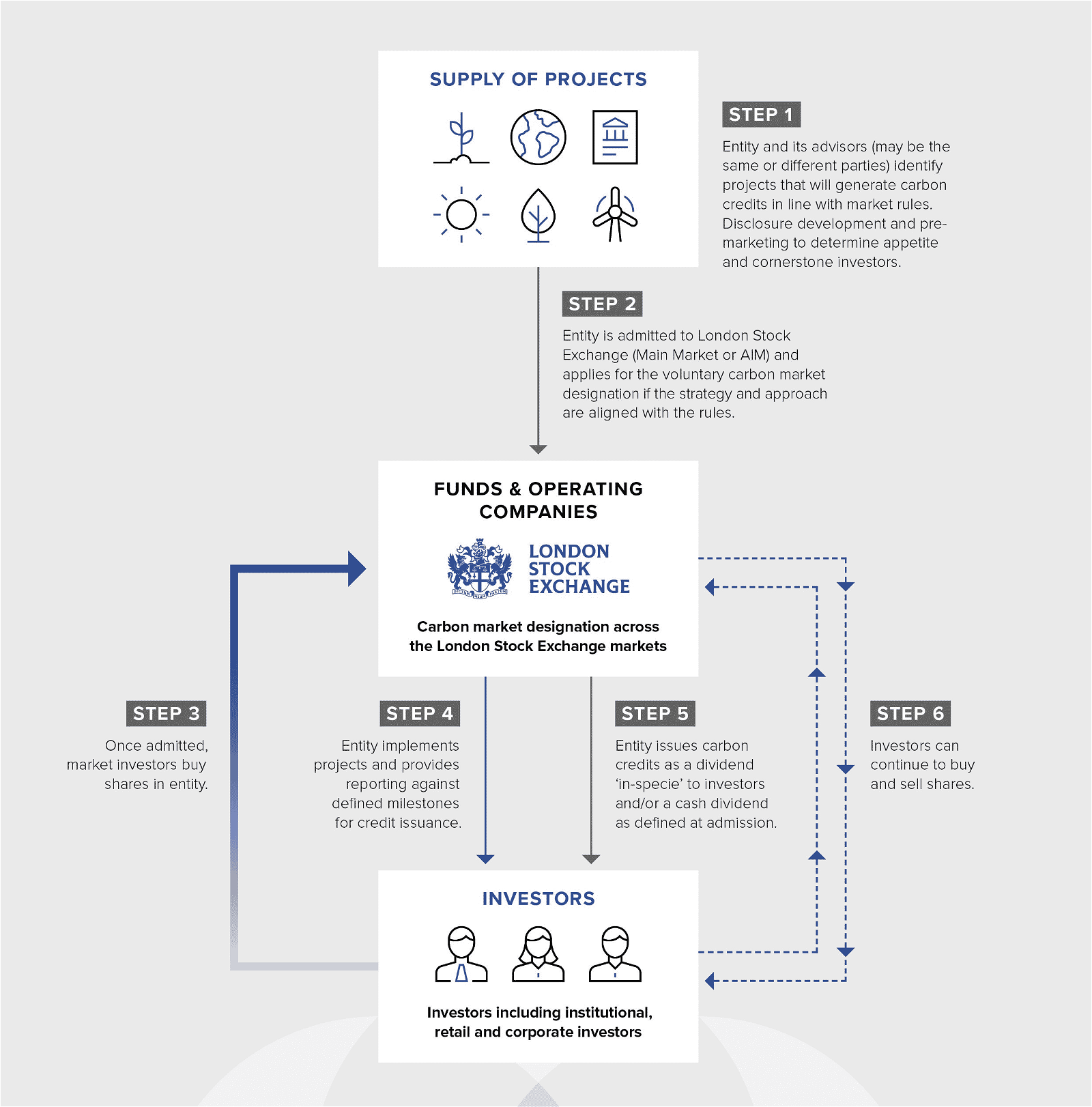The London Stock Exchange has finally launched its voluntary carbon market (VCM) rules for entities that seek to raise funds through its listings for climate solutions.
LSE’s announcement came after almost a year since it first revealed that it would create a new market solution to hasten the availability of financing for projects that support the transition to net zero emissions.
The aim it to bring more capital into emissions reduction projects. It will also help scale up the global VCM with the new rules for voluntary carbon credits, also called offsets.
The London Stock Exchange‘s VCM
According to LSE, it’s the first public stock exchange to create this kind of capital raising solution that supports the VCM’s expansion.
The Exchange’s CEO Julia Hoggett said the solution:
“… paves the way for capital at scale to be channeled into a range of climate change mitigation projects… while providing corporates and other investors with net zero commitments with the ability to access a diverse supply of high-quality carbon credits.”
The solution that the LSE VCM offers will enable an entity to use an initial public offering (IPO) to raise capital. The fund will then be put into climate mitigation projects, either nature-based or technology-led.
Moreover, it will also help corporations that want to offset unavoidable emissions as part of their net zero journeys. It will also expose investors to a growing asset class of carbon credits.
There is a growing demand for carbon credits as more businesses vow to reach net zero by 2050. To meet this demand, supply must scale effectively.
And thus, the London Stock Exchange VCM designation was created to support the scaling of the VCMs globally.
What is the LSE VCM designation?
The designation may be applied to qualifying Funds or Operating Companies that are admitted to the Main Market or AIM. They must also invest in climate change mitigation projects that yield carbon credits.
The applicants may invest in those projects entirely or as part of a broader portfolio of climate-aligned assets.
Apart from the existing regulatory requirements, applicants also have to disclose detailed information for the carbon credit projects. This includes the following details:
- the qualifying bodies whose standards will apply to the projects,
- project types,
- expected carbon credit yield, and
- whether the projects are to meet any of the UN Sustainable Development Goals.
Finally, the VCM designation does not represent a trading venue for carbon credits.
Rather, it’s for the applicant to decide whether to trade carbon credits on a trading platform.
How Does the LSE’s VCM work?
The London Stock Exchange VCM follows the general process of the existing VCMs.
The market platform is available for entities that meet the criteria set out in Schedule 8 of the Admission and Disclosure Standards.
Here are the specific steps that interested entities will go through when dealing with the LSE VCM.
LSE intends to facilitate a deep, liquid venue for the listing of carbon funds. These funds will provide the VCM with a clear price signal and confidence that money can move in and out of investments as needs change.
Upon successful implementation, the platform will enable the development of funds focused on specific project types supported by a new flow of investment from corporates.
This design allows asset managers and owners to have a clearer picture of how effective climate action is within their portfolio companies.
The publication of the final rules comes about a year after LSE announced its intention to form a carbon markets solution at COP26 last year.
So far, it’s the latest among the efforts from around the globe as investors and regulators aim to have robust standards for the fast-growing carbon markets.
Better yet, it’s a response to grave concerns that some projects fail to deliver their promised emissions reductions. By promoting transparency through its admission and disclosure rules, the LSE VCM seeks to fix this issue.
This will build the confidence and liquidity needed for institutional investors to join in scaling up the market.


